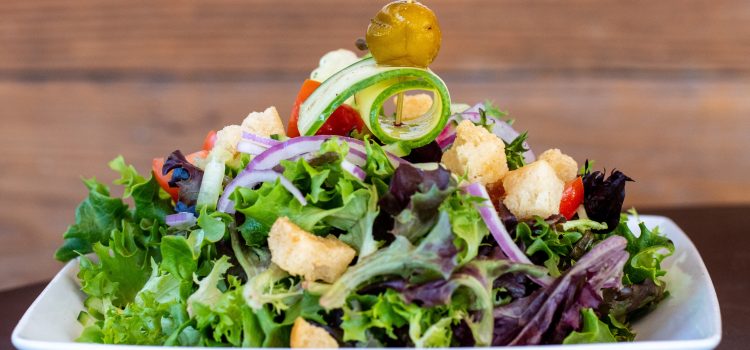
If you knew there was a secret to living past 100, would you do anything to uncover it? Well, the answer might be sitting right in front of us on our plates. It’s time to take a closer look at how centenarians eat and see if their diet could hold the key to longevity. So grab a cup of tea and join us as we explore the fascinating world of eating like a centenarian!
What is a Centenarian?
A centenarian is a person who has reached the age of 100 years or more. A study published in the journal PLOS One found that people who ate like centenarians – eating a diet full of fruits, vegetables, and whole grains – had a lower risk of death than those who didn’t. Researchers believe that this may be because centenarians’ diets are rich in antioxidants, which protect cells from damage.
There’s no definitive answer as to why consuming a diet like that of a centenarian might help you live longer, but it’s believed that it could have something to do with reducing inflammation and improving heart health. Plus, eating like a centenarian may give you some good advice for living a happy and healthy life regardless of your age!
The Benefits of a Centenarian Diet
A Centenarian Diet Could Help You Live Past 100 Years
People who eat a diet high in fruits and vegetables, whole grains, and lean protein have a lower incidence of chronic diseases and longer lives. Scientists believe that these dietary factors may be responsible for the apparent longevity benefits of centenarians.
A study published in The Journals of Gerontology Series A found that people over age 100 who ate a mostly plant-based diet had a 42% lower risk of death from any cause than those who ate a diet high in animal-based products. Furthermore, the plant-based group had a 66% lower risk of death from heart disease. Elderly people who consumed more vegetable matter also had a 33% reduced risk of fracture compared to those who ate less vegetable matter.
These findings suggest that eating like centenarians may help you live longer by reducing your risk for chronic diseases and fractures. In addition to consuming more fruits and vegetables, whole grains, legumes, nuts, and unsaturated fats may also be beneficial for elderly individuals.
How to Achieve a Centenarian Diet
It’s no secret that a healthy diet is key to preserving your health as you age, but what about living to 100? Turns out there are plenty of ways to enjoy a centenarian-friendly lifestyle without even trying. Here are five tips for eating like a centenarian:
1. Stick to whole foods
One big way to eat like a centenarian is to stick to whole foods as much as possible. Whole foods include unprocessed items such as fruits, vegetables, nuts and seeds, and less processed options such as home-cooked meals or canned goods. This way of eating is typically more nutritious and gives you the benefits of antioxidants, vitamins and minerals that come from eating whole foods.
2. Make sure your intake of protein is high
Protein is essential for keeping you healthy and strong as you age. According to the World Health Organization (WHO), protein helps keep muscles strong and can help reduce the risk of developing diseases such as heart disease, stroke and cancer. Getting enough protein in your diet can be tricky if you’re not used to consuming more protein regularly, so aim for about 20% of your daily caloric intake from protein sources. Consider including high-quality animal proteins such as lean steak or chicken breast along with other whole grains, fruits and vegetables in your meals.
3. Include plenty of fiber in your diet
Fiber is another important nutrient for preserving health in later years. According to
The 5 Best Foods to Eat If You Want to Live Longer
There are a few different things you can do to help lengthen your life and live a healthier lifestyle. One of the most important things you can do is eat a healthy diet. You don’t have to become a vegetarian or vegan, but it’s important to include plenty of fruits and vegetables in your diet. Here are five foods that are known to increase lifespan:
1. Blueberries: A study published in the “Journal of Agricultural and Food Chemistry” found that blueberries may help prevent age-related diseases, including obesity, heart disease, stroke, diabetes and cancer.
2. Olive oil: Not only is olive oil rich in antioxidants, but studies show that it may also protect against heart disease and other health conditions.
3. Avocados: Avocados are high in monounsaturated fats and antioxidants which may help protect your cells from damage caused by free radicals.
4. Dark chocolate: Dark chocolate has been shown to be beneficial for lowering blood pressure and reducing the risk of heart attack or stroke.
5. Garlic: Garlic is a powerful antioxidant that has been shown to reduce the risk of several diseases including cancer, heart disease, Alzheimer’s disease, arthritis and asthma symptoms.
Conclusion
While there is no guaranteed way to live a long, healthy life, adopting some of the habits of centenarians may help you extend your time on this earth. By eating foods that are high in antioxidants and fiber, Centenarian Secrets reveals how these individuals have been able to stay healthy and energetic into their 100s. If you’re looking for ways to increase your lifespan and reduce the risk of age-related diseases, read on!










